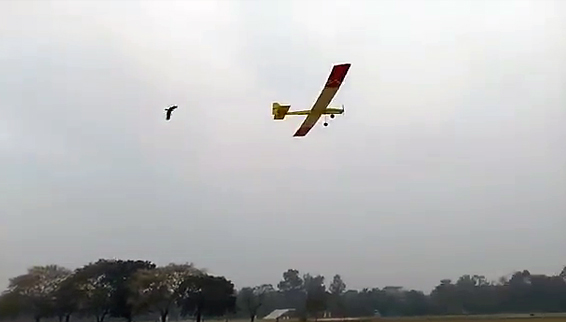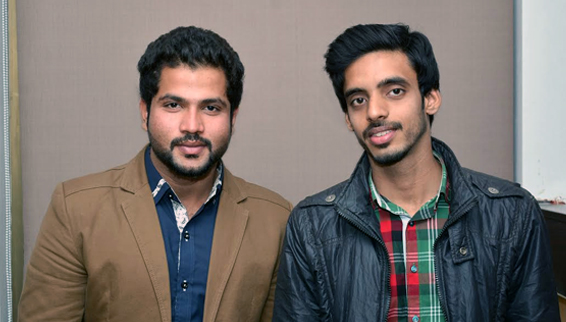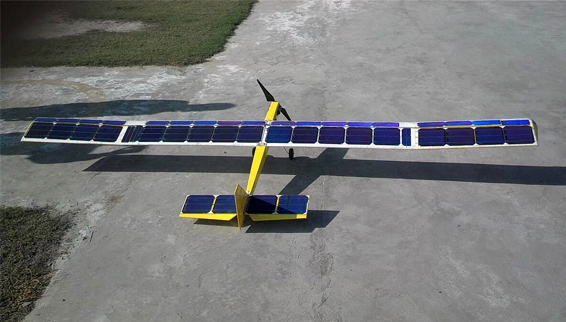Pakistans first Solar Airplane ready to fly in the air
Wednesday, January 27 2016
The model of the solar plane designed at UMT is named as “Shams One”
Keeping in mind the importance of energy conservation for the progress of the country, two students of engineering at the University of Management and Technology (UMT) manufactured a solar model plane. Already a nuclear power, the nation is rapidly moving towards technological revolution. Named as “Shams One”, the solar plane is manufactured by Abdul Mateen and Syed Muhammad Junaid, students of School of Engineering under the supervision of their Project Head, Jameel Ahmed at UMT.
Shams One, is a remote control (RC) device, which can fly without any fuel but using solar energy stored in a battery. “At first we did not succeed in our goal, but determination and self belief kept us going until we fulfilled our mission. If resources are provided, we can have an airplane which is fully sustainable in terms of energy, relying totally on the Sun,” the students claimed. The model can go in air for hours wide and could remain there for more than eight hours but, since it is small, it becomes invisible after 1000 ft. Now, the airplane is installed through a remote control (RC) that could be expanded but real plane could be controlled through satellite and Radar.



“We are dreaming to fly Shams One high above the Arabian Sea and around the world,” said Junaid, adding that taking off and landing on the biggest international airports with an experimental aircraft would connect Pakistan to the rest of the world. This airplane could also be used for monitoring damages of natural disasters such as flood and earthquake aftermath, the students commented.
While describing the features of plane, the young engineers said that Shams One is not the first solar airplane ever designed, but it is certainly the most ambitious. “None of its predecessor models has ever managed to fly right through the air with only one motor on board,” they said, adding that the pilot would be in contact via satellite where the professionals would monitor the route and manage its performance and energy.
They acknowledge the immense support of UMT Rector Dr Hasan Sohaib Murad, Dr Salim Abid Tabassum, Dean SEN, CoD EE Dr Sajjad H Shami and faculty for playing an important role in their success. While commenting on the issue, UMT Rector Dr Hasan Sohaib Murad said that Pakistani youth have talent in abundance and they can discover new worlds and conquer skies. In a country where it is believed that most of things are imported and nothing is made, these geniuses are showing up their talent one after another, he added, “Our students have already manufactured a solar car and one of our faculty members Faran Awais Butt has recently won US Patent in radar technology.”
It is high time that our Pakistani scientists, aircraft controllers, flight directors, technicians and engineers should work on the useful projects such as these. Pakistanis need to find new ways of improving the quality of life and clean technologies and renewable forms of energy are part of the solution. This technological adventure is a part of continuation effort by one of the Pakistan’s topnotch and best accredited institution of higher education i.e. UMT, which is providing technology to the world in the 21st century.